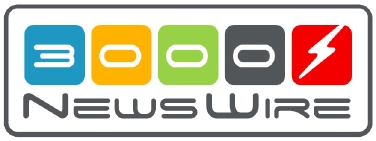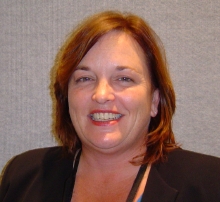 |
 |
|
|
November 2005Leading An Offer of an Enterprise Group
The two groups cooperated to a certain extent in 2003 and 2004, primarily through content at the Interex HP World conferences. But despite all the talk of merging the two user groups after HP merged with Compaq in 2002, the consolidation never came to pass, despite HP’s desire to work with a single group. Encompass is driven by a Digital customer base, now leavened with Compaq users. Interex was founded by HP 3000 users, then extended its ranks during the 1990s by attracting HP’s Unix customers and then enterprise Windows users. Encompass mounted its own conference event each year, most recently called the Enterprise Technology Symposium, heavily attended by HP’s presales pros and Certified Professionals, along with customers. But ETS didn’t have an expo floor anywhere near as extensive as the one at HP World. When HP announced its 2005 HP Technology Forum in the summer of 2004, the vendor invited both Interex and Encompass to participate, sharing the revenues from a combined conference. Interex passed up the option to merge its show with the Encompass event. Encompass had a plan ready to respond to HP’s introduction of a new show. Browder headed up the Encompass board during 2004, that time when the user group cast its conference lot with its closest partner, HP. She’s been a user group volunteer since 1990 and a member since 1987. Browder now works in her duties, representing Encompass and networking with HP execs, around her full-time post as IT Director of Silicon Laboratories. While we examined the Technical Forum last month in Orlando, including a SIG session with VMS users that evoked memories of many an MPE meeting, we sat down with Browder to learn what the user group could offer HP 3000 users, as well as how Encompass differs from the now-bankrupt Interex. We at DECUS made the decision to launch an independent enterprise computing group, primarily because we saw the shift in the market to heterogeneous environments. Not everybody was running a VAX; they had IBM in there, networks were bigger. The name DECUS tied us to the Digital technology, and didn’t encompass — for lack of a better word [laughs] — the rest of the market. It actually stands for Enterprise Computing Association. When Mike Capellas became the CEO at Compaq, he loved the name Encompass, because he thought we did it for Compaq. When we were DECUS, our staff was paid Digital employees. During some of the downsizing that Digital was doing, we thought we’d better spin off on our own, or we’d get lost. We hired SmithBucklin, our management company, to handle the day-to-day tactical stuff that we as a board didn’t want to deal with, then we launched Encompass. Then very close to that time, Compaq acquired Digital. That’s correct. The beauty of the SmithBucklin model is that it can morph with our budget. We pay for a set of services. If we were to get into a position — which we’re not at this time — where we might not be able to afford a particular program or service, we just downsize the model. SmithBucklin works with us to accommodate that. We call it a “pay as you throw” model, like the Austin extra garbage collection. We go through a strategic planning process every year. Sometimes we use scenario-planning in that. One of the scenarios was “What if HP were to come to us and tell us they wanted to have one big event? What would our response be?” During that process we said, “No-brainer; we’d go with our primary partner, Hewlett-Packard. Hopefully everyone else will come with us, so it makes the network a lot larger.” User groups are about the people; if you don’t have the people, you don’t have a reason to exist We’d already made that decision, so when it actually was put on the table, we just pulled out Scenario Plan No. 4. And we said we’d do it. This is the first time I’ve heard that. We’re independent. If we were vendor-led, we never would have become Encompass. We left the name DECUS behind. Do we recognize that our primary partner is Hewlett-Packard? You bet. The purpose of staying tied to the vendor in terms of collaboration was critical to the success of keeping the organization together. It’s one roof that everybody’s under, and it just increases that collaboration. We own the floor space for the Technology Forum’s expo. When we went into this partnership with HP, that was one of the things they said they didn’t want to do: manage the vendor floor. We pulled in a few SmithBucklin sales reps and they took over selling the show floor. It’s a part of us, but we were also core to the conference content team. We see the show floor as the place where you go to look at the technology. Where you learn about the technology is in the sessions. It is an HP training event, and we saw that as a plus. The customer, the sales rep, the certified professional: all are being trained side by side. There are some tracks that are independent: If I wasn’t a certified professional, I couldn’t get in, or if I wasn’t an HP Presales person. We saw that as more of a value-add, the lab equipment being there while you sit side by side with someone who might be supporting you in the field. What we look to [board director] Chris [Koppe] for is to keep the continuity for the Interex members. There are things we weren’t covering, like MPE. Several technologies we can adopt through the Interex model, so long as we can find people there, which is what Chris is helping us with. Yes. But it’s part of our charter to move people, too. As you saw in the OpenVMS SIG, there was a lot of passion in that room. One of our jobs as a partner to HP is to keep them as an HP customer but assist them in migration. Sometimes when you’re doing a migration you run a mixed shop, and it takes awhile. That’s one of the things we learned from the DEC days. We did multiple migrations: VAX to Alpha, Alpha to Itanium. We’re pretty good at migrations. We’ve still got a very large population of people out there like that. At some point another operating system may fall off the radar. Since our core roots are in the Digital space, we’ll be able to continue to provide a venue for them. We actually have an advocacy group; it’s called the HP Online Advocacy Group. We do try to feed input into Hewlett-Packard through the Advocacy Steering Committee. At the SIG level we’re looking at doing some things. We’re meeting with the Business Critical Systems Group tonight to discuss ways we can help get that two-way feedback going into and out of engineering more effectively. We used to have an enhancement voting process, for example, which we used in the DECUS days. Now BCS is very interested in hearing about it. We get tremendous support from HP. They want to have user groups. They may want to have one user group some day, but right now we look at partnering with other groups, like [the OpenView Forum] and [the Tandem] user group. It’s not so much about the number for us, although there’s strength in numbers. We look at what is a quality member, versus the quantity of members. I’d much rather have 10,000 people who are highly active in the organization and participate, than 20,000 who were just there because their name was on a list. One of things we’re doing to grow our membership is a program to give Certified Professionals a 50 percent discount on dues. We’ve done the outreach with the Interex membership, too, with a year free: try before you buy. We’re not going to be bidding for that list. We’re looking for a more grassroots approach to it, in terms of getting the SIGs re-engaged and the local user groups re-engaged. Again, it’s about quality, not quantity. The Advocacy Steering Committee has two volunteer members from each user group. I’m on there from the Encompass side, and I put forward [Interex member and Hpuseradvocacy.org’s] Steve Davidek. I put his name forward along with Chris’s because even though we’d done two user group shows with Interex, we still didn’t have the contacts in their community that these people have. I don’t know what those numbers are. We were pretty successful in making that transition. When we moved our conference to Orlando, I know that in overall attendance we loss 800 people in that transition, but we gained 800. People who couldn’t make to New Orleans had an opening this week in Orlando. There’s probably some HP World attendees that we picked up in that regard as well. Actually, HP absorbed most of that. There was a little bit of revenue lost, on the exhibit floor, where we owned the revenue. We had discussions about whether we were willing to give a little to get a little. We all agreed that we were. We’ve got a broad base. We’ve got the smaller crowd, but we’ve also got Starbucks, American Airlines. There are some enterprise shops out there that are very active. We were successful in getting the Alliance Partners here: Citrix, Microsoft and Oracle, so they must have seen some value in that. That was work through our sales team in terms of sponsorships. The core at Encompass right now is the mid-size company, which has the most representation in our membership. But we do have the high-end customer, as well as the one-person shops. The little ones come from our legacy base, the guys who are doing the legacy VMS consulting. Yes. [Laughs] We have them too, trust me. OpenVMS is a very vocal and opinionated crowd, and they have been for as long as I can remember: Whether it was Digital, and Digital didn’t do enough marketing, or we’re out there fighting for your systems. I’ve seen people cry at the podium.
Licensed under the Creative Commons License. |
||
